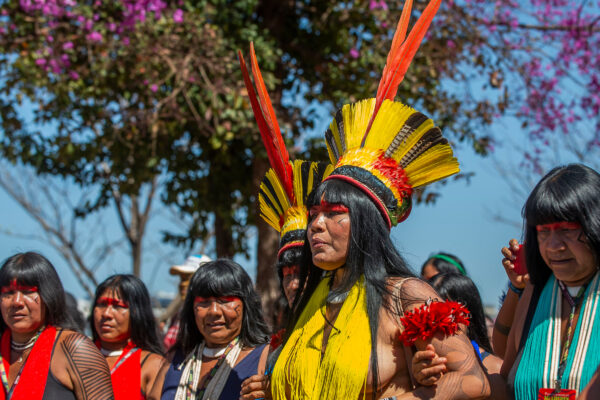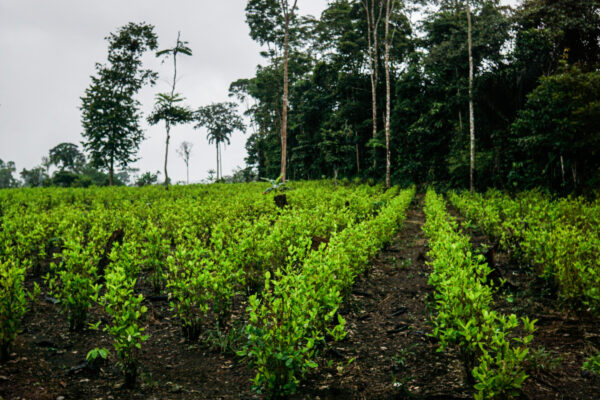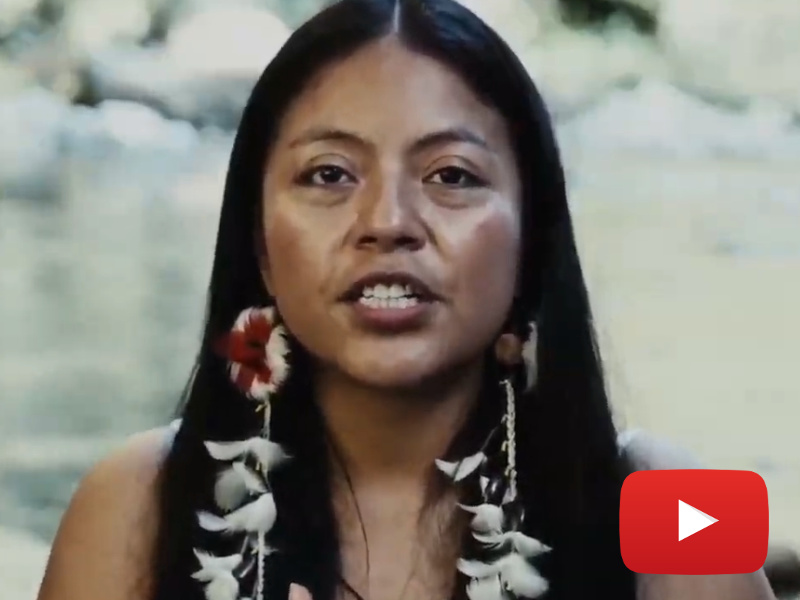Itaituba, Pará, Brazil – Last Monday, March 25, a contingent of Munduruku people blockaded Brazil’s Trans-Amazonian highway, BR-230, calling for the repeal of Law 14.701/23 and the end of efforts by Brazil’s Supreme Court (STF) to slash their constitutional land rights. Obstructing traffic at the intersection of the BR-230 and that of the BR-163 “soy” highway, a critical corridor for agribusiness exports, their growing 150 person mobilization coincided with the resumption of the “Conciliation Board” established by the STF and headed by Justice Gilmar Mendes to debate the merits of Law 14.701, including unconstitutional provisions that would open Indigenous lands to industrial mining.
Determined to receive an audience with Justice Mendes, the Munduruku are growing their presence in the blockade while calling other local Indigenous groups to join the occupation. As of this morning, they have given Mendes 24 hours to respond positively before they maintain a total shutdown of the highway. In addition to intensifying pressure upon the STF, the mobilization aims to call attention to the worsening attacks on forests and forest peoples in the state hosting the COP30 climate summit.
In the petition filed with the STF by the Articulation of Indigenous Peoples of Brazil (APIB), Indigenous peoples state that the law represents setbacks and harms Brazil’s position in international arenas, especially on the eve of COP30.
Despite engaging in peaceful protest and complying with court rulings to clear the road, Munduruku protestors have been subjected to egregious racism, verbal abuse, threats, and physical violence from truck drivers transporting agricultural products. Last week, several Munduruku protestors were injured by rocks thrown by truckers, and on the night of March 27, truckers reportedly opened fire at the occupation camp on the side of the road. Leaders are clear that the Brazilian government is evading its responsibility to protect protestors’ safety and guarantee their right to demonstrate, making them complicit in and accountable for this ongoing violence against the Munduruku.
Law 14.701/23 contains the controversial Marco Temporal Thesis, an ad hoc legal argument asserting that Indigenous peoples who were not present on their territories at the time of the Federal Constitution’s ratification on October 5, 1988, are not entitled to the recognition of their traditionally occupied lands. Driven by Brazil’s powerful agribusiness sector, the law represents a grave assault on Indigenous land rights.
“We are here resisting, blocking this road where commodities make their way to export and where they want to build the Ferrogrão [mega-railway], suffering agribusiness’s anti-Indigenous racism and violence, to block the Marco Temporal and Law 14.701,” said Goldman Prize winner Alessandra Korap Munduruku.
A statement issued by the Munduruku Ipereg Ayu movement states: “We are occupying and closing BR 163 so that the Supreme Court respects our Constitution, ends this Conciliation Board, and revokes once and for all Law 14.701/23 of the temporal framework, which has already been ruled by this Supreme Court to be unconstitutional. Neither the government, Congress, nor the Supreme Court can decide about our lives and our territories without first consulting us.”
“The righteous occupation of the BR-230 led by the Munduruku and the government’s failure to protect them from violence demonstrates the ongoing neglect and harm their home state of Pará – host of COP30 this year – is inflicting,” said Ana Carolina Alfinito, Brazil Legal Advisor at Amazon Watch.
The blockade is occurring in a context where Indigenous peoples are being increasingly repressed and marginalized across Pará, continuing a long track record of human rights and environmental violations in the Amazonian state. Earlier this year, Indigenous leaders successfully repealed a remote education bill that would have weakened the presence and cultural integrity of education in their territories. As the state prepares for the COP30 climate summit in Belém, it bulldozed tens of thousands of acres of protected Amazon rainforest to build a new four-lane highway, directly threatening the livelihoods of local communities and opening up the region to further extractivism and exploitation.
“State and federal governments must protect and uphold Indigenous land rights, which are the most effective strategy to stop the advancement of extractivism in the Amazon and protect our global climate. Ahead of COP30, it is critical that the Brazilian Supreme Court and National Congress revoke the Marco Temporal Thesis once and for all, as it has already been responsible for slowing the land demarcation processes throughout the country and has violated the fundamental right to territory for thousands of Indigenous peoples,” Alfinito underscored.














